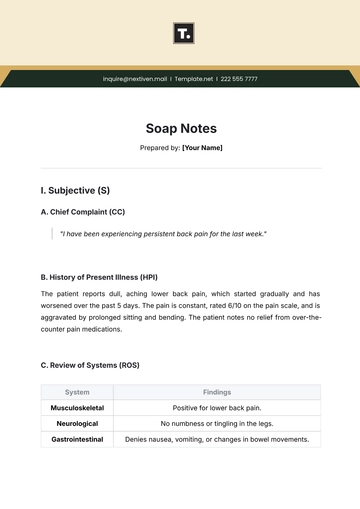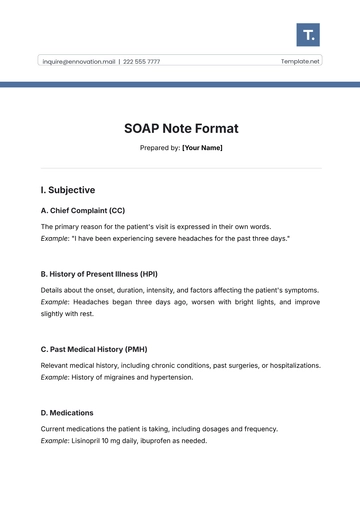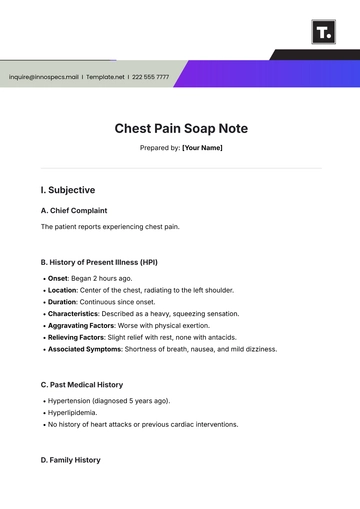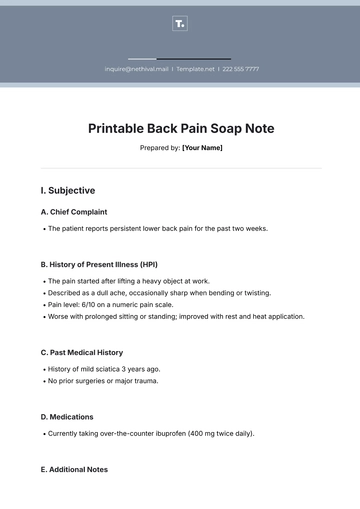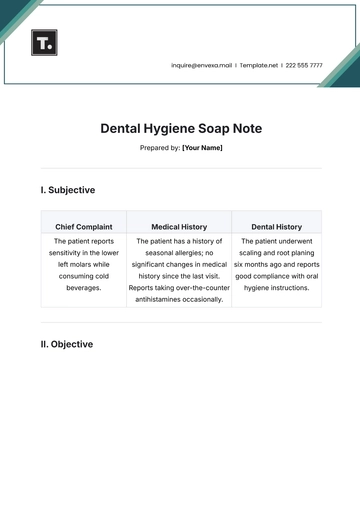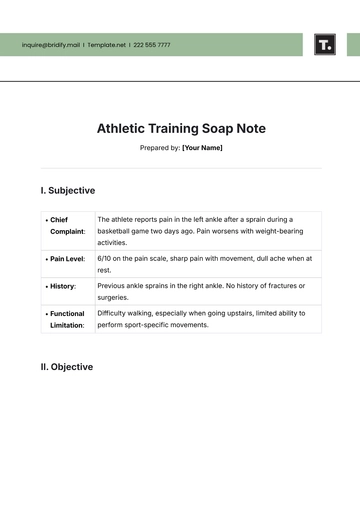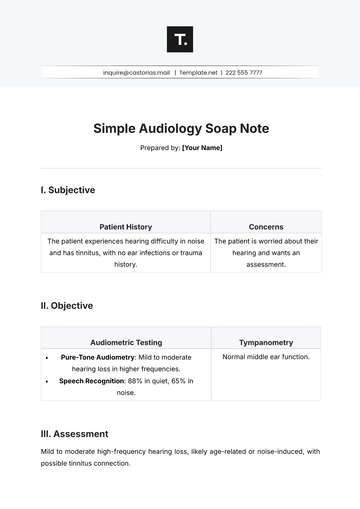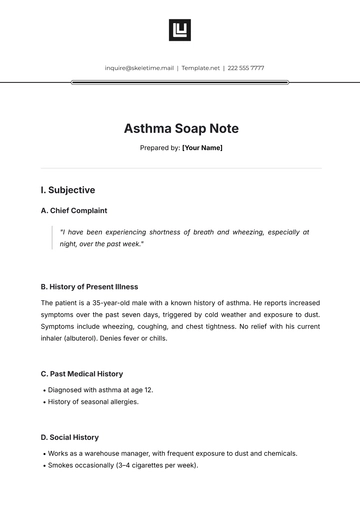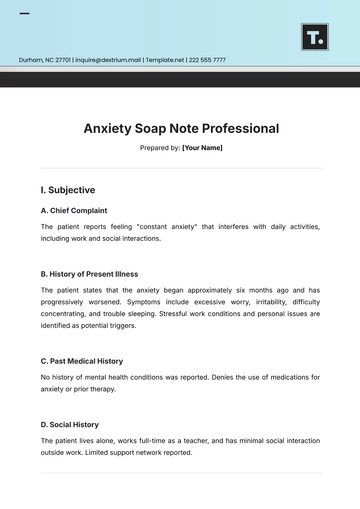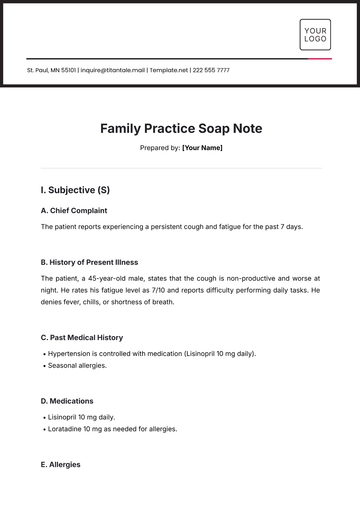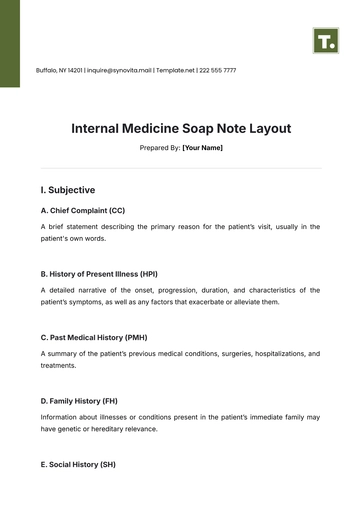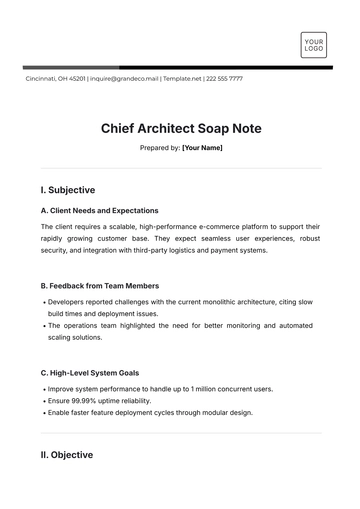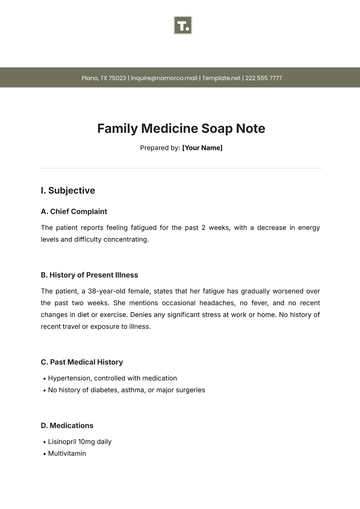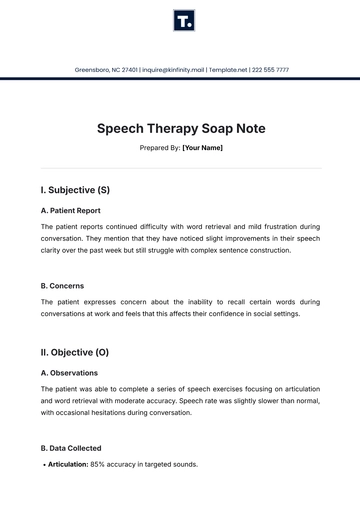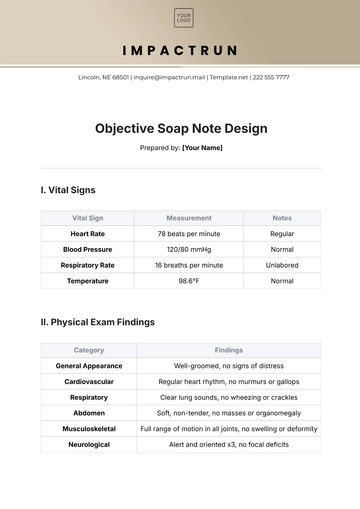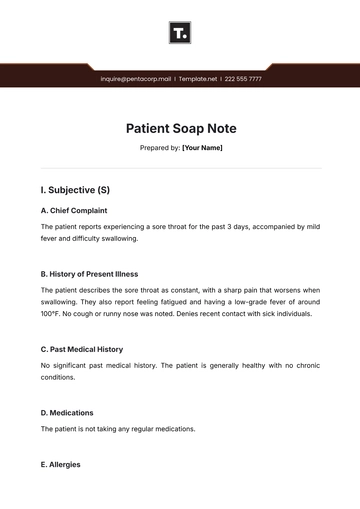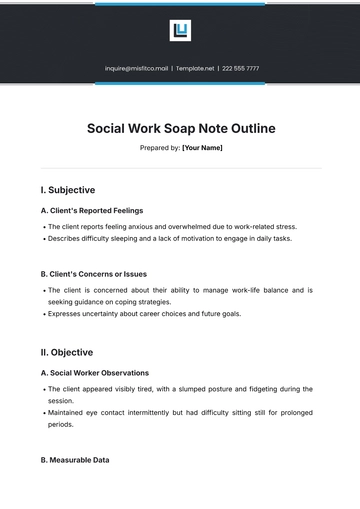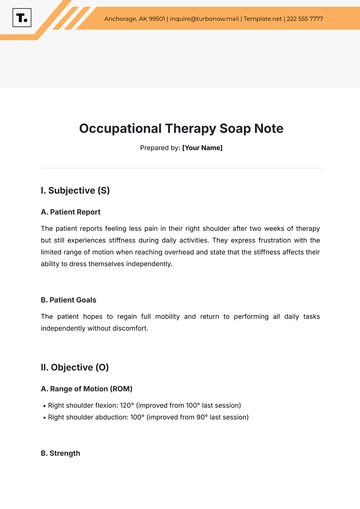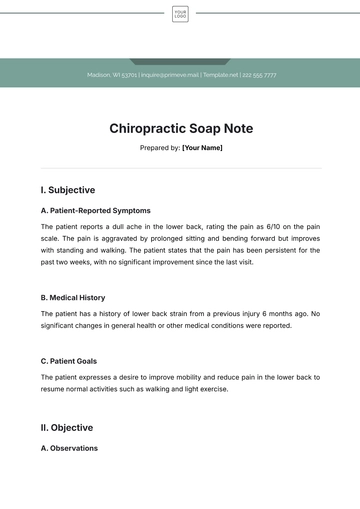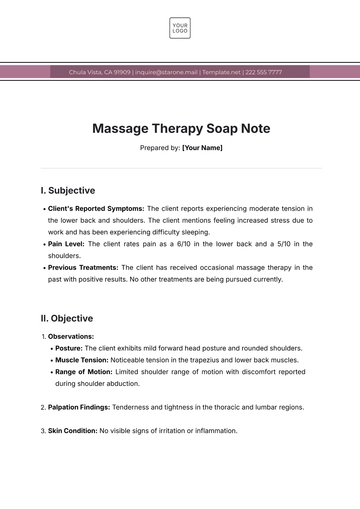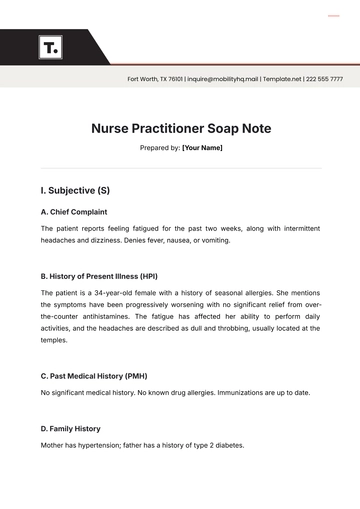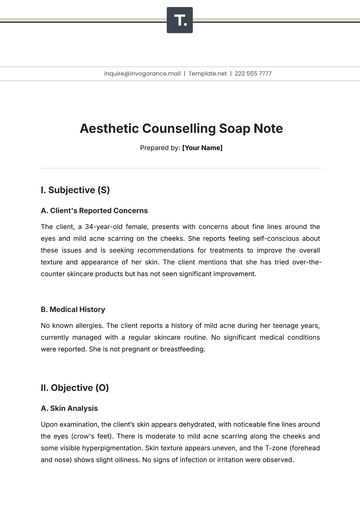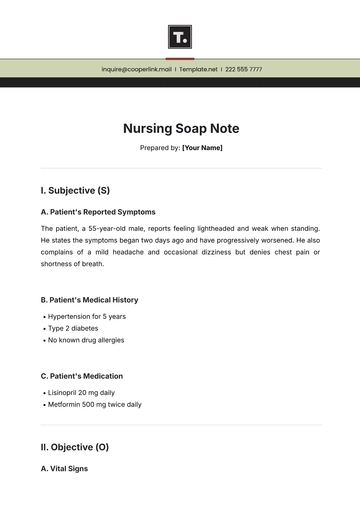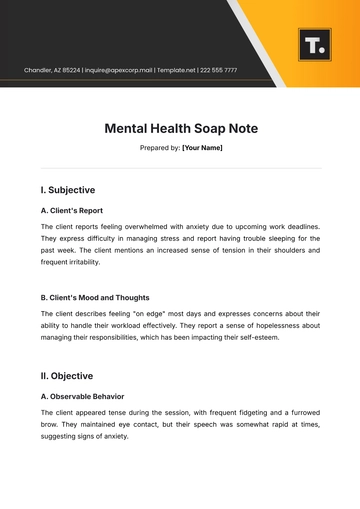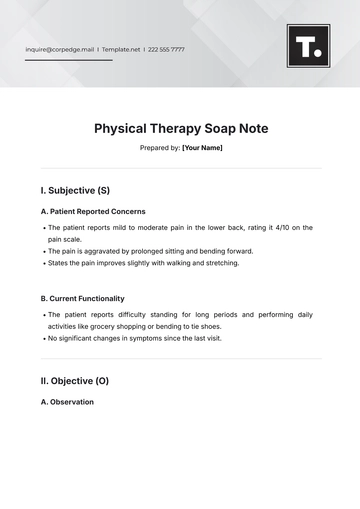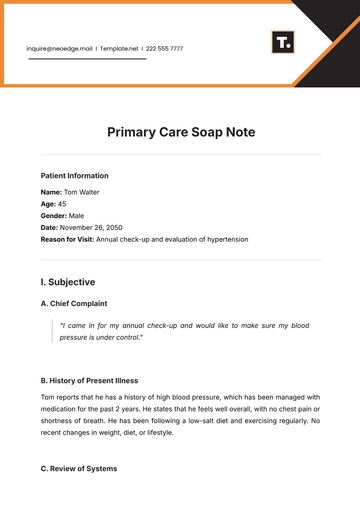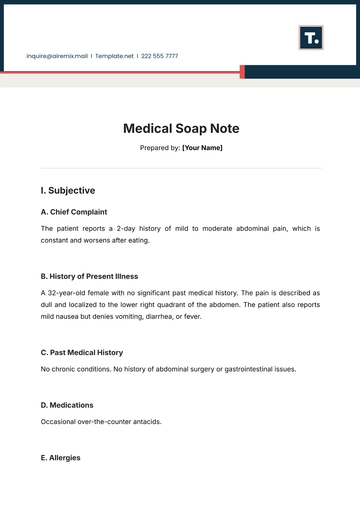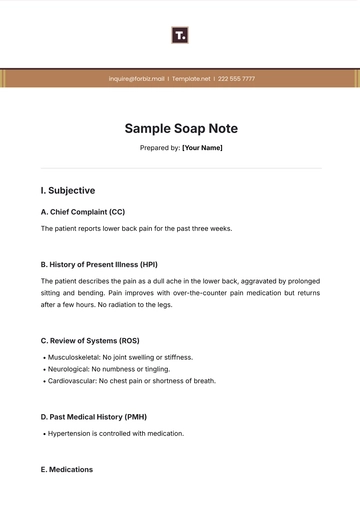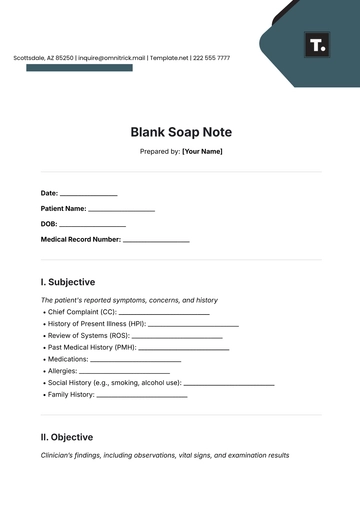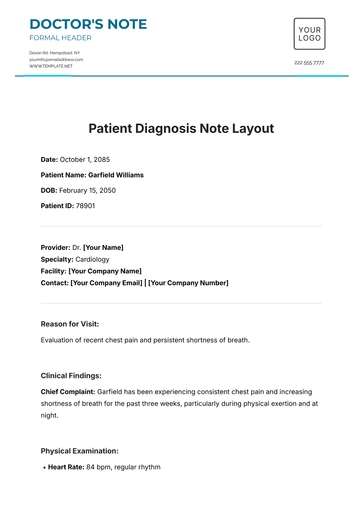Free Patient Diagnosis Note Layout
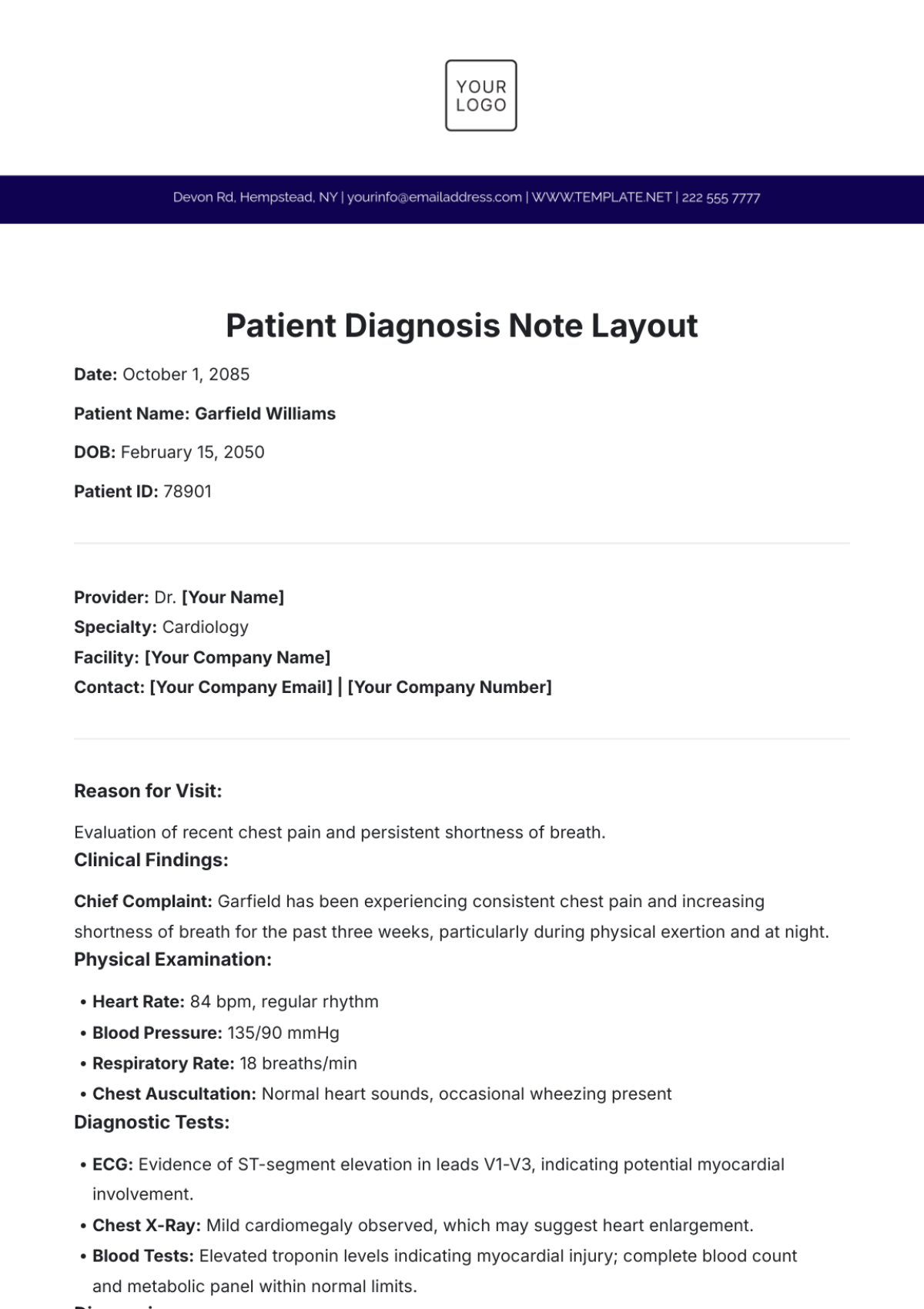
Date: October 1, 2085
Patient Name: Garfield Williams
DOB: February 15, 2050
Patient ID: 78901
Provider: Dr. [Your Name]
Specialty: Cardiology
Facility: [Your Company Name]
Contact: [Your Company Email] | [Your Company Number]
Reason for Visit:
Evaluation of recent chest pain and persistent shortness of breath.
Clinical Findings:
Chief Complaint: Garfield has been experiencing consistent chest pain and increasing shortness of breath for the past three weeks, particularly during physical exertion and at night.
Physical Examination:
Heart Rate: 84 bpm, regular rhythm
Blood Pressure: 135/90 mmHg
Respiratory Rate: 18 breaths/min
Chest Auscultation: Normal heart sounds, occasional wheezing present
Diagnostic Tests:
ECG: Evidence of ST-segment elevation in leads V1-V3, indicating potential myocardial involvement.
Chest X-Ray: Mild cardiomegaly observed, which may suggest heart enlargement.
Blood Tests: Elevated troponin levels indicating myocardial injury; complete blood count and metabolic panel within normal limits.
Diagnosis:
Acute Myocardial Infarction (ST-Elevation Myocardial Infarction - STEMI): Confirmed by ECG findings and elevated troponin levels.
Congestive Heart Failure: Indicated by mild cardiomegaly on chest X-ray, correlated with patient symptoms of fatigue and dyspnea.
Treatment Plan:
Immediate Interventions:
Initiate thrombolytic therapy to dissolve the clot.
Schedule for urgent coronary angiography to assess the extent of coronary artery disease.
Medication:
Administer aspirin 325 mg, clopidogrel 75 mg, and beta-blockers for heart rate control.
Prescribe ACE inhibitors to help manage heart failure symptoms.
Lifestyle Modifications:
Recommend a heart-healthy diet, focusing on low sodium and low saturated fats.
Strongly advise cessation of smoking and reduction of alcohol intake.
Encourage regular, supervised physical activity once stabilized.
Follow-Up:
Schedule a follow-up appointment in two weeks to evaluate recovery progress, reassess treatment efficacy, and modify medications as necessary.
Patient Education:
Garfield has been educated on the significance of adhering to prescribed medications, recognizing signs of worsening conditions, and making crucial lifestyle adjustments to prevent future cardiovascular incidents. He has been provided with written materials covering heart health, diet, and exercise.
Additional Notes:
Garfield is advised to take ample rest and avoid engaging in any strenuous physical activities during his recovery. He has been instructed to seek immediate medical help if he experiences any exacerbation of symptoms, such as intensified chest pain, shortness of breath, or dizziness.
- 100% Customizable, free editor
- Access 1 Million+ Templates, photo’s & graphics
- Download or share as a template
- Click and replace photos, graphics, text, backgrounds
- Resize, crop, AI write & more
- Access advanced editor
Enhance your medical documentation with Template.net's Patient Diagnosis Note Layout Template. This customizable and editable tool ensures precision and ease in capturing patient diagnoses. Effortlessly editable in our AI Editor Tool, it streamlines your workflow while maintaining professional standards. Elevate your practice's efficiency, accuracy, and professionalism with this essential resource for healthcare professionals.
You may also like
- Delivery Note
- Notes Release
- Concept Note
- Class Note
- Hospital Note
- Apology Note
- Credit Note
- Handover Note
- Personal Note
- Excuse Note
- Case Note
- Sample Doctor Note
- Lesson Note
- Appointment Note
- Piano Note
- School Note
- Progress Note
- Business Note
- SOAP Note Templates
- Therapy Note
- Briefing Note
- Summary Note
- Sample Note
- Printable Note
